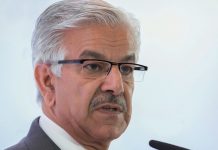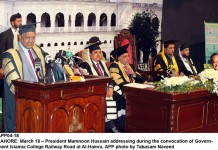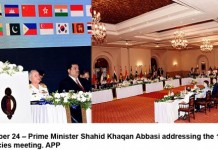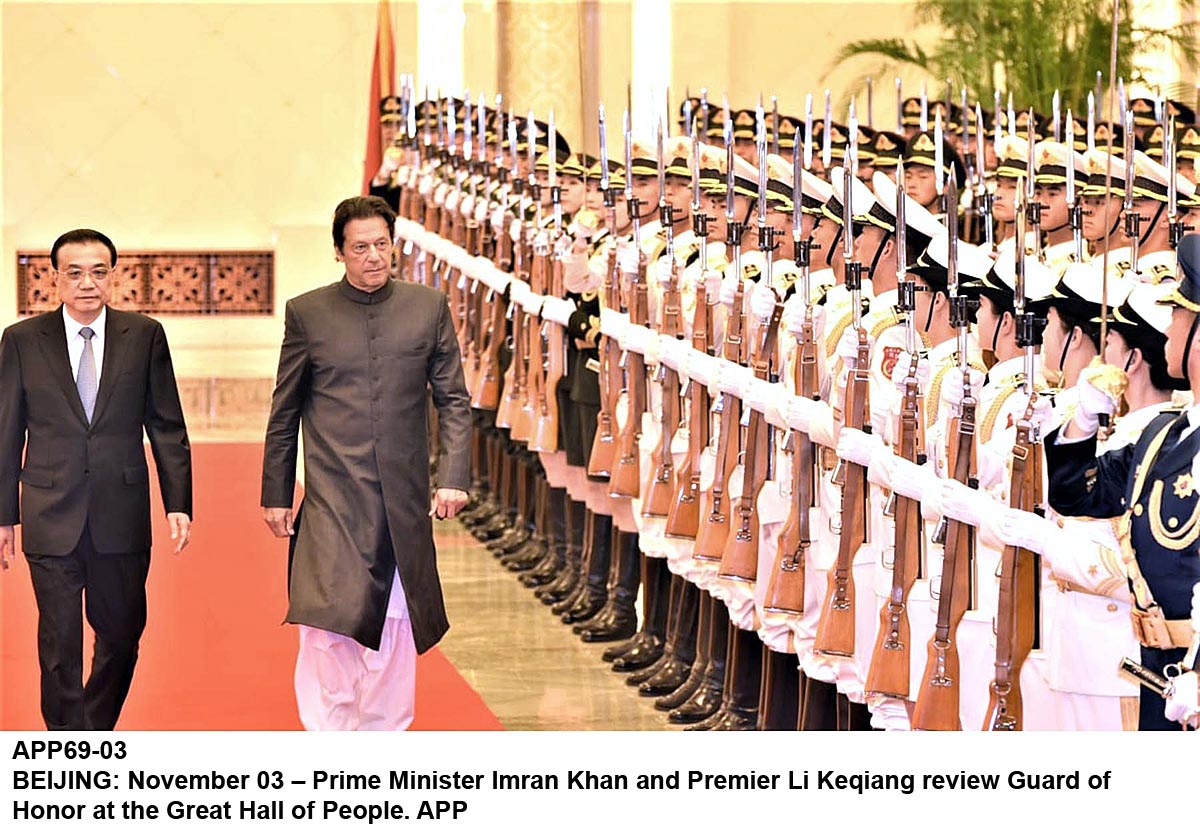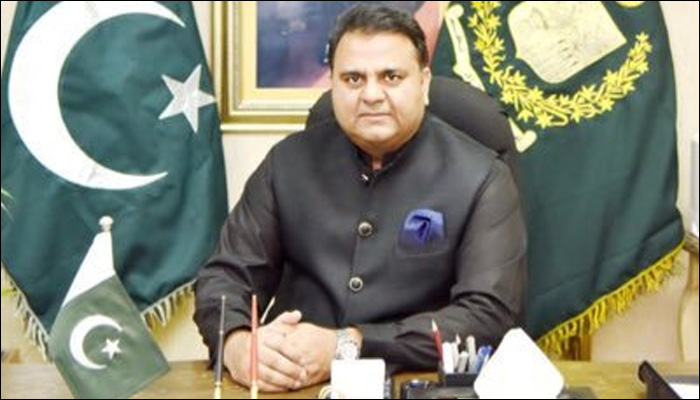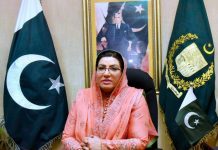BEIJING: Prime Minister Nawaz Sharif on Saturday spoke high of the cooperation by Chinese government as well the China’s National Energy Administration (NEA) to help Pakistan cope with energy crisis through building power generation projects.
Addressing the Bhasha Project Conference held by NEA in Beijing he said that the NEA had been an effective and reliable partner in its fight to cope with energy crisis.
He was accompanied by Punjab Chief Minister Shahbaz Sharif, Sindh Chief Minister Murad Ali Shah, Khyber Pukhtunkhwa (KP) Chief Minister Pervaiz Khattak and Balochistan Chief Minister Sanaullah Khan Zehri, besides Planning and Development Minister Chaudhry Ahsan Iqbal, Finance Minister Ishaq Dar, Commerce Minister Khurram Dastgir, Railways Minister Saad Rafique, Information Technology (IT) State Minister Anusha Rehman and Advisor to PM on Foreign Affairs Sartaj Aziz.
He said that apart from helping Pakistan in addressing the issue of power shortages, NEA had also helped Pakistan’s power sector experts in going through the critical learning curve.
The prime minister thanked the NEA for hosting an extremely important and strategic session for Bhasha Dam, a project of critical importance for the future of Pakistan.
He said that Pakistan’s human resource had benefitted tremendously from its interaction with experts and academia under the NEA. The work done by the Joint Working Group on energy has laid solid foundation for the development of Pakistan’s energy sector to its optimal potential.
At present, he said that NEA was looking after the bulk of high impact power projects in Pakistan under the China-Pakistan Economic Corridor (CPEC).
“I take this opportunity to acknowledge that the fast-track implementation of Early Harvest Projects will be a critical component of our effort to eliminate power outages by the middle of next year,” he remarked.
He apprised the audience comprising heads of various power sector firms that a 300 mega watt solar power project and two wind power projects of 50 mega watts each had already started power production.
Similarly, the Sahiwal coal-fired power project was ahead of schedule and its first unit of 660 mega watts was expected to come in production in the month of June. The first unit of the Port Qasim coal-fired project was also moving at a high pace and was expected to become operational by this November.
Apart from this, a number of other projects in the generation and transmission sectors are also under implementation, he added.
He viewed that President Xi’s visionary initiative of “One Belt-One Road” CPEC was not only a “game-changer” for Pakistan but also for the entire region. It would stimulate inclusive socio-economic development, help in eradicating poverty and promote peace and prosperity in the region and beyond.
Nawaz said that CPEC was not merely a strategic agreement but a fruit of decades-long friendship between Pakistan and China. The success of CPEC can also be gauged from the fact that large number of countries are now showing eagerness to join and become part of this initiative.
For economic development and long-term prosperity Pakistan not only required support in the energy sector but it also needed mega initiatives to improve its water storage capacity. Therefore, development of the North Indus Cascade is a major focus of my government and the construction of the Bhasha Dam is the single most important initiative in this behalf, he said.
He said that water and food security was of paramount importance for Pakistan keeping in view the challenges posed by climate change.
At the conference, the heads and representatives of power sector companies in China gave presentations on their study of the Bhasha Dam project and called for deeper study on the project owing to its crucial nature for Pakistan.
Later, Nawaz also witnessed the signing of a Memorandum of Understanding (MoU) regarding roadmap for power projects under CPEC that was signed by Water & Power Secretary Yousuf Naseem Khokhar and Chinese Ambassador in Pakistan Sun Weidong.



